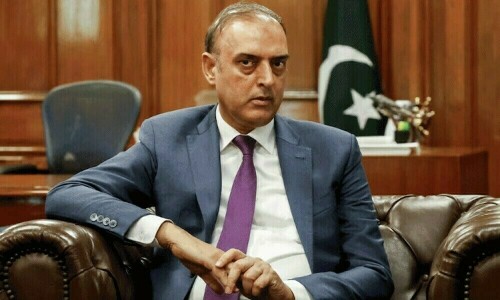Pakistan Gears Up to Modernize Financial System with Digital Currency Pilot and Virtual Asset Regulations
Pakistan is intensifying its efforts to modernize its financial infrastructure, with the State Bank of Pakistan (SBP) preparing to initiate a pilot program for a digital currency and finalizing legislation to govern virtual assets, according to Governor Jameel Ahmad.
The SBP, like numerous central banks worldwide, is exploring the potential of digital currencies amid the growing interest in blockchain-based payment systems. Pakistan’s initiative mirrors similar actions taken by regulatory bodies in countries like China, India, Nigeria, and several Gulf nations, all of which are testing or have launched digital currencies through carefully managed pilot schemes.
Speaking at the Reuters NEXT Asia summit held in Singapore, Ahmad stated that Pakistan is actively “developing its capabilities regarding the SBP’s digital currency” and anticipates launching a pilot program shortly.
He participated in a panel discussion alongside Sri Lanka’s central bank governor, P. Nandalal Weerasinghe, where both discussed the challenges related to monetary policy in South Asia.
Ahmad further commented that the impending legislation would “establish the framework for the licensing and regulation” of the virtual assets sector and that the SBP is already engaged with various technology partners.
Virtual Assets Act, 2025 Receives Presidential Approval
This development builds upon the work of the government-backed Pakistan Crypto Council, which was established in March with the aim of promoting the adoption of virtual assets. The PCC is investigating Bitcoin mining utilizing surplus energy, has brought on Binance founder Changpeng Zhao as a strategic advisor, and intends to create a state-operated Bitcoin reserve.
The council has also engaged in discussions with US-based cryptocurrency firms, including World Liberty Financial, which has ties to Trump.
In May, the State Bank of Pakistan provided clarification that virtual assets are not deemed illegal. However, it cautioned financial institutions against involvement until a formal licensing structure is in place.
During the panel, Ahmad noted, “There are inherent risks, but also significant opportunities in this emerging domain. We must carefully assess and manage the risks, while simultaneously ensuring we do not miss out on potential opportunities.”
Remittance Inflow Reaches Record $38.3 Billion in FY25
Maintaining a Strict Stance, Rates Show Decline
Regarding monetary policy, Ahmad communicated that the central bank is dedicated to maintaining a stringent policy approach to ensure inflation remains within the target range of 5–7% over the medium term.
Pakistan has lowered its benchmark interest rate from a high of 22% to 11% over the past year. This adjustment occurred as inflation saw a substantial decrease from 38% in May 2023 to 3.2% in June, averaging 4.5% in the fiscal year 2025, marking a nine-year low.
“We are presently observing the beneficial effects of this rigorous monetary policy on both inflation and our external accounts,” he added.
Ahmad also clarified that Pakistan’s exposure to dollar depreciation is limited, as the majority of the nation’s foreign debt is denominated in dollars, with only 13% consisting of Eurobonds or commercial loans.
“We do not anticipate any significant repercussions,” he stated, also mentioning that reserves have increased to $14.5 billion, a notable rise from under $3 billion two years prior.
Ahmad confirmed that Pakistan’s current three-year, $7 billion IMF program, set to conclude in September 2027, is progressing as planned and has already spurred reforms in fiscal policy, energy pricing, and the foreign exchange market.
“We are optimistic that following the completion of this IMF program, we may not require an immediate follow-up arrangement.”
During the panel discussion, the SBP governor addressed a question regarding whether Pakistan had established financing strategies for imminent military equipment acquisitions, especially imports from China.
He responded that he was unaware of such strategies and emphasized that the central bank’s primary responsibility is to ensure the efficient operation of the interbank market and to maintain sufficient foreign exchange reserves “to prevent any issues concerning trade financing.”



Comments (0)
No comments yet. Be the first to comment!
Leave a Comment